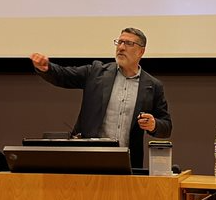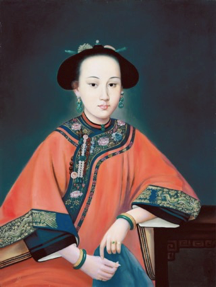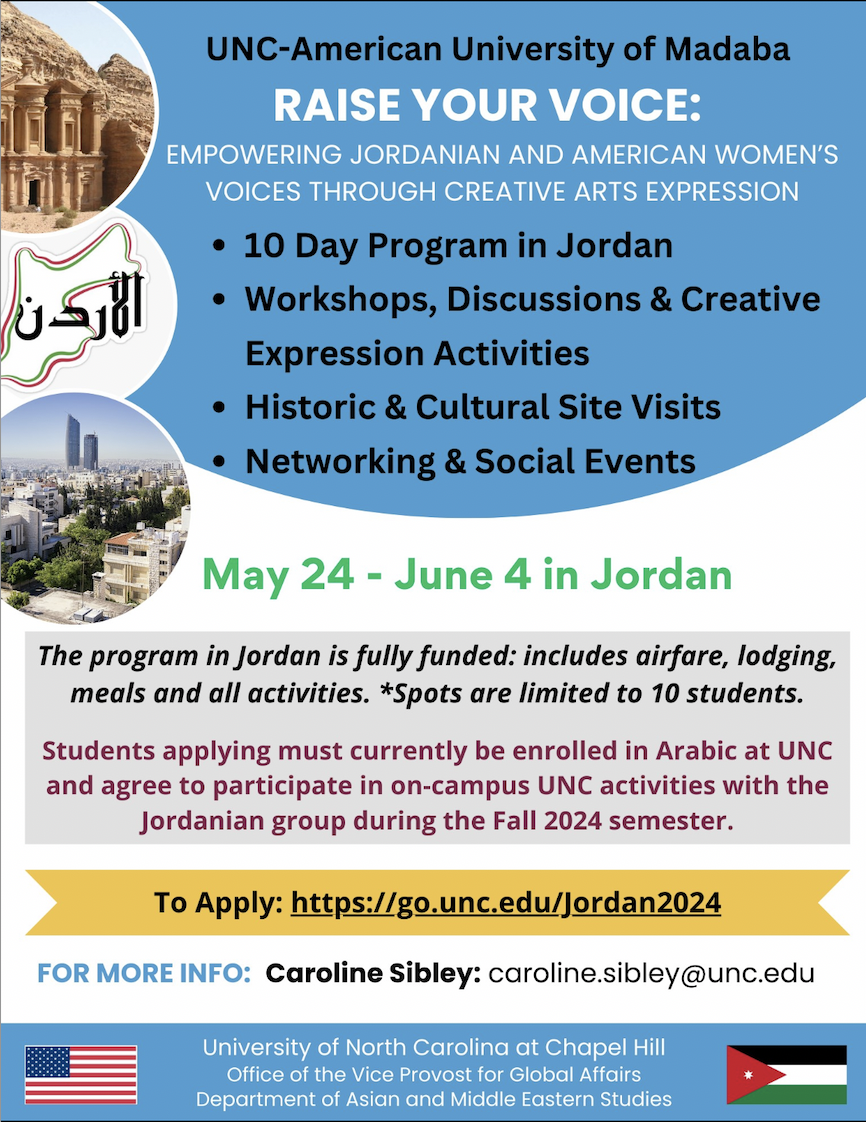 As part of our lecture series this year on “Legacies of the Middle Eastern and Muslim Experience of the 20th Century,” we were delighted to host Professor Zvi Ben-Dor Benite of New York University, one of the most eminent scholars of the history of Chinese Muslims. Over 100 students, faculty, and community members attended on February 6th to hear Professor Benite’s speak about “The History of Chinese Muslims as a Link between China and the Middle East”.
As part of our lecture series this year on “Legacies of the Middle Eastern and Muslim Experience of the 20th Century,” we were delighted to host Professor Zvi Ben-Dor Benite of New York University, one of the most eminent scholars of the history of Chinese Muslims. Over 100 students, faculty, and community members attended on February 6th to hear Professor Benite’s speak about “The History of Chinese Muslims as a Link between China and the Middle East”.
 Professor Benite gave a captivating lecture on the questions of religious freedom and identities, and Muslim subjects in China’s Qing Empire from the 16th-20th centuries. There has been a growing interest in the story of Chinese Muslims because their experience illustrates how, as a religious minority, they were able to preserve their identity and faith practices while being a loyal member of a non-Muslim majority imperial system. Many modern Chinese nationalists are also proud of how their past empires allowed their Muslim minority to practice their religion, while being proud subjects and citizens of the Chinese political system. This stands in contrast to contemporary and historical discrimination towards Muslim minorities in Europe and the US.
Professor Benite gave a captivating lecture on the questions of religious freedom and identities, and Muslim subjects in China’s Qing Empire from the 16th-20th centuries. There has been a growing interest in the story of Chinese Muslims because their experience illustrates how, as a religious minority, they were able to preserve their identity and faith practices while being a loyal member of a non-Muslim majority imperial system. Many modern Chinese nationalists are also proud of how their past empires allowed their Muslim minority to practice their religion, while being proud subjects and citizens of the Chinese political system. This stands in contrast to contemporary and historical discrimination towards Muslim minorities in Europe and the US.

Lady Hoja, Consort Rong, and the Uyghur Muslim concubine of China’s Xianlong Emperor
Benite presented a complex picture of the Chinese Muslim experience over multiple centuries. On the one hand, educated Chinese Muslims claimed that they can be faithful believers in a monotheistic religion and have their religious institutions (including mosques) and at the same time, excel in Confucian learning and serve the Chinese empire. Thus, they presented Prophet Muhammed not as a rival to the emperors of the Qing Empire, but as a sage from West Asia. On the other hand, China’s Manchu Qing Emperors presented themselves as legitimate rulers of all of their diverse subjects, including Muslims.
He gave the example of a police arrest case from 1782, when a Chinese Muslim was depicted as carrying “dangerous” books related to Islam and linked to a regional Muslim rebellion in West China. Benite’s archival research on Chinese documents of genealogies revealed that this Muslim was actually a grandson of the legendary Ming Dynasty Muslim minister Hai Rui. It also showed that the Qianlong Emperor intervened in this case, with his own imperial edict. It emphasized that Muslims are not a threat to his dynasty and his empire, that all Muslims should be treated with respect, and not be seen as suspicious of sedition, with reference to the rebellion of some Muslims in other parts of the empire.
Benite described this story as an example of cosmopolitan imperial policy toward ethnic and religious diversity. He invited his audience to reflect on lessons to be learned from this case study, to understand current debates on islamophobia in China and the United States. There were questions from the audience about the legacy of this tolerant imperial treatment of religious minorities in China, and how this policy is remembered in modern China, when the right claims of the Uyghur minority are seen as a threat to the Chinese political system.
Article by Yusuf Enes Sezgin





